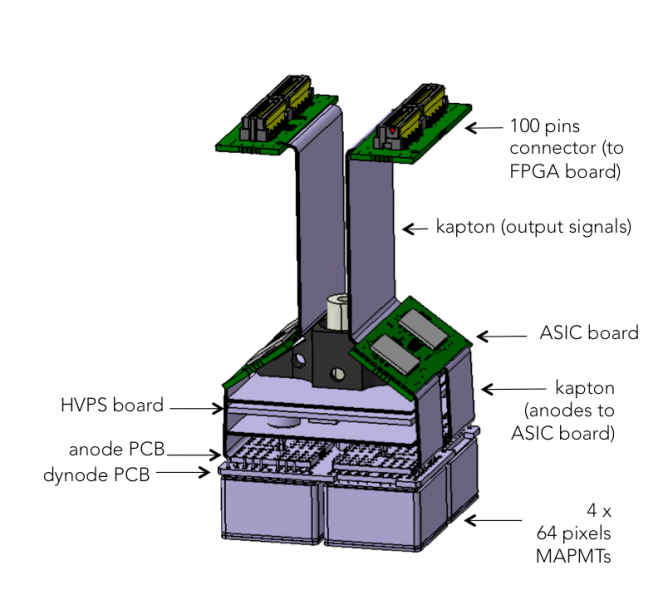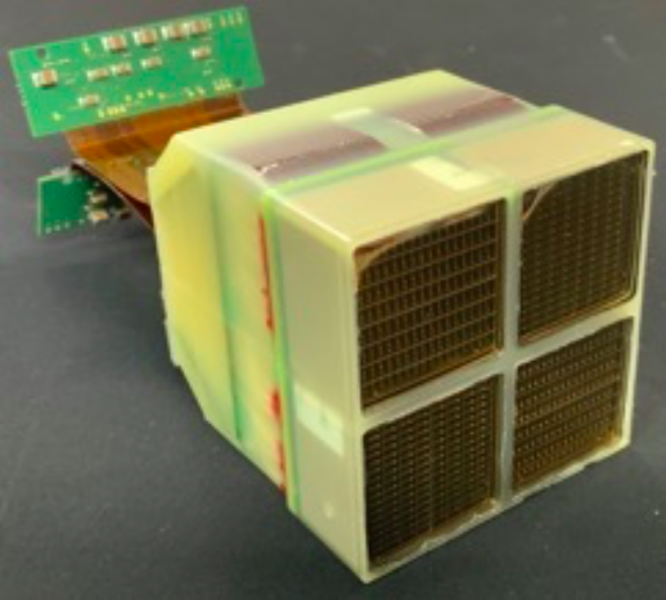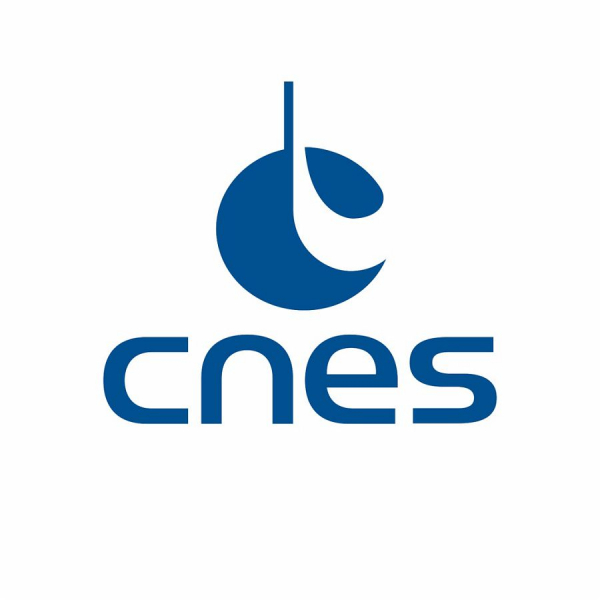

The photodetection R&T, funded at APC by CNES from 2021 to 2022, aims to increase the performance, stability, compactness and versatility of the photodetection module initially developed at IN2P3 as part of the instrumental work of the JEM-EUSO Collaboration (supported by CNES since 2011). Its vocation is to allow the APC team to propose their technology in various contexts, such as astroparticles, meteor studies, high-energy atmospheric phenomena, or even in the frame of space debris monitoring programs.
The work carried out in the context of the EUSO-Ballon (CNES mission under stratospheric balloon, in 2014) and EUSO-SPB (NASA mission under pressurized balloon, in 2017) missions allowed the development of an intermediate version of the photodetection modules, whose characteristics have already allowed the APC team to valorize its achievements via the supply of 9 second generation units to the MINI-EUSO space mission dedicated to the observation of terrestrial UV emission from the ISS, which is successfully taking data since 2019. This work (focused on photodetection, front-end electronics, with the realization of a dedicated ASIC, and precision calibration) has been supported twice by the IN2P3 Instrumentation R&T program (DEFI), and has led to a unique detection module capable of operating in the UV-vis region (270nm-720nm), ultra-sensitive (used in "single photon counting" mode), multichannel (256 pixels), fast (1 µs, with 6 ns resolution), light (250 g), low power consumption (< 500 mW), compact, juxtaposable and spatializable.
This R&T must lead to the optimization of the multi-anode photomultiplier tubes (interaction with the supplier Hamamatsu Japan concerning the design of the sensors), to a gain of compactness on the detection unit, to the increase of the photocounting dynamic ranges of the module, the addition of acquisition modes on new time scales to broaden the field of application of the module, and even the possible validation of the replacement of multi-anode photomultipliers by silicon photomultipliers (SiPM / MPPC).
Staff
- Scientific responsible: Etienne Parizot
- Technical responsible: Guillaume Prévôt

